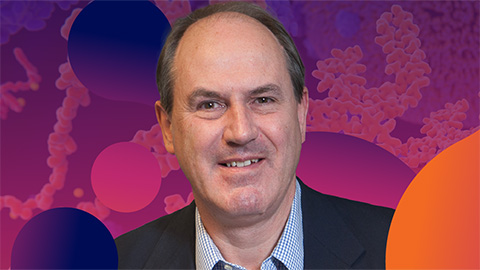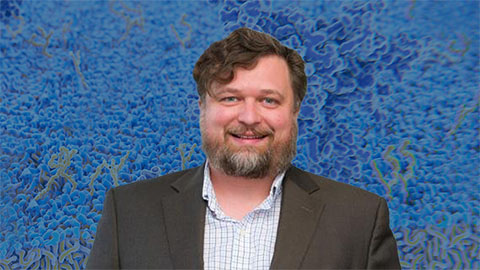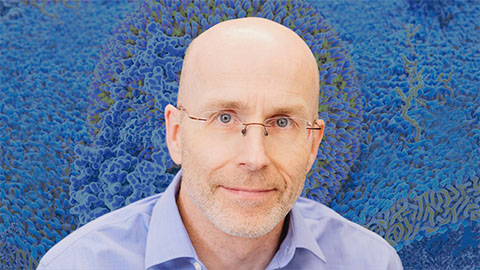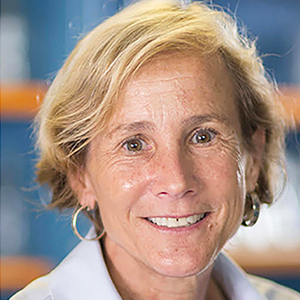
The era of “smart” organelles
Organelles are the fundamental units of cellular organization, and our understanding of their roles in cell physiology has evolved dramatically since they first were described in the early 20th century. Though organelles originally were thought of as simple compartments for biochemical reactions and confined to eukaryotes, new studies have revealed “smart” roles for them in fine-tuning metabolism as well as serving as platforms coordinating signaling and quality-control pathways in both bacteria and eukaryotes.
Recent work illuminates the organizational principles governing how organelles cleverly coordinate cell quality control. These reveal how organelles create microenvironments for metabolic pathways, how they facilitate interorganelle communication to sense and respond to specific cues, and how the phase properties of lipids and proteins equip organelles to protect cells from stress and maintain organismal homeostasis.
Our symposia at the American Society for Biochemistry and Molecular Biology’s annual meeting, Discover BMB, in Seattle in March illustrate these themes and feature work in an array of fields, including prokaryotic and eukaryotic cell biology, cancer biology, and phase separation biophysics.
Just like in the song “Whatever It Takes” by Imagine Dragons, organelles are equipped to do whatever is necessary for cells to adapt and survive the ever-present challenges of life.
Keywords: Bacterial microcompartments, interorganelle communication, protein and lipid phase separation, mitochondrial metabolism.
Who should attend: Anyone interested in learning how organelles are constructed, organized and responsive to signals. Also people interested in the phase properties of proteins and lipids in organelle biology.
Theme song: “Whatever It Takes” by Imagine Dragons.
The session is powered by lipids, proteins and cellular stress.
Speakers
Bacterial organelles
Luning Lu, University of Liverpool
Danielle Tullman–Ercek, Northwestern University
Cheryl Kerfeld (chair), Michigan State University
Arash Komelli, University of California, Berkeley
Phase separation in organelle structure and function
W. Mike Henne (chair), University of Texas Southwestern Medical Center at Dallas
David Savage, University of California, Berkeley/Howard Hughes Medical Institute
Martin Jonikas, Princeton University
Alex Merz, University of Washington School of Medicine
Inter-organelle communication
Rushika Perera (chair), University of California, San Francisco
Karin Reinisch, Yale University
Laura Lackner, Northwestern University
Sarah Cohen, University of North Carolina at Chapel Hill
The complete list
Learn about all 11 symposia planned for Discover BMB 2023:- Protein Machines and Disorder
- Regulation of RNA
- Organelles, Mechanisms and Phase Properties of Cellular Quality Control
- Lipid Dynamics and Signals in Membrane and Protein Structure
- Frontiers in Carbohydrate Synthesis and Recognition
- Bias In, Bias Out in Data Science
- Cell Signaling — New Tools and Emerging Concepts
- Education and Professional Development
- Biochemistry of Elemental Cycling
- Advances in Organismal and Cellular Metabolism
- Artificial Intelligence and Machine Learning in Structural Biology, Drug Design and Systems Biology
Enjoy reading ASBMB Today?
Become a member to receive the print edition four times a year and the digital edition monthly.
Learn moreGet the latest from ASBMB Today
Enter your email address, and we’ll send you a weekly email with recent articles, interviews and more.
Latest in Science
Science highlights or most popular articles

Defining JNKs: Targets for drug discovery
Roger Davis will receive the Bert and Natalie Vallee Award in Biomedical Science at the ASBMB Annual Meeting, March 7–10, just outside of Washington, D.C.

Building better tools to decipher the lipidome
Chemical engineer–turned–biophysicist Matthew Mitsche uses curiosity, coding and creativity to tackle lipid biology, uncovering PNPLA3’s role in fatty liver disease and advancing mass spectrometry tools for studying complex lipid systems.

Redefining lipid biology from droplets to ferroptosis
James Olzmann will receive the ASBMB Avanti Award in Lipids at the ASBMB Annual Meeting, March 7–10, just outside of Washington, D.C.

Women’s health cannot leave rare diseases behind
A physician living with lymphangioleiomyomatosis and a basic scientist explain why patient-driven, trial-ready research is essential to turning momentum into meaningful progress.

Life in four dimensions: When biology outpaces the brain
Nobel laureate Eric Betzig will discuss his research on information transfer in biology from proteins to organisms at the 2026 ASBMB Annual Meeting.

Fasting, fat and the molecular switches that keep us alive
Nutritional biochemist and JLR AE Sander Kersten has spent decades uncovering how the body adapts to fasting. His discoveries on lipid metabolism and gene regulation reveal how our ancient survival mechanisms may hold keys to modern metabolic health.


